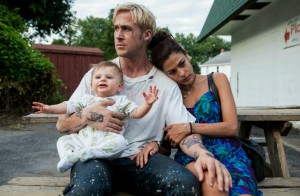I wrote a few reviews

I used to post all of my reviews on here first, but I realized I was stealing, like, 20 readers a week from LGBT Weekly, so now I’m posting them late or just on my Publications page.
But I think from now on I’ll do — or try to remember to do — monthly wrap-ups.
I was did not like American Sniper:
In its first weekend in wide release, American Sniper earned more money than all of the other eight nominees for Best Picture at this year’s Academy Awards. It made $107 million of the Martin Luther King, Jr. holiday weekend, a record for a movie in January. By the time the Oscars are given out, it’s likely that the film will earn more than all of the other eight combined. The film had great marketing and was receiving award nominations, but nothing could have predicted how much the film would draw in audiences, not only in so-called middle America, but on the coasts, too; it was the number one film in California that weekend, too. Something about American Sniper has struck a chord, and it’s not clear what. Pundits are arguing about its politics, whether it’s pro or anti-war, whether it’s racist or just murderous, whether it’s true or not, whether or not it deserved to receive six Oscar nominations. I think the politics are decidedly muddled, and I think it deserved one nomination – for Bradley Cooper’s excellent performance – but the rest are somewhat ridiculous. It’s not a great film. [Read the rest.]
Still Alice was so, so sad:
It’s likely that both the Best Actor and Best Actress winners at this year’s Academy Awards will go to portrayals of people suffering from chronic neurodegenerative diseases. The films couldn’t be more different, however. In The Theory of Everything, Eddie Redmayne plays Stephen Hawking, who was struck with Lou Gehrig’s Disease (or ALS) more than 50 years ago and is miraculously still alive, if a paraplegic who speaks through a computer. The film is a saccharine triumph-over-adversity tale that ends with adoring fans cheering him on. In Still Alice, Julianne Moore plays a fictional woman who develops early onset Alzheimer’s Disease. The story is not about triumph, but about the slow degradation of Alice’s once lively brain and perfect life and, secondarily, how that affects her loving family. It’s as subtle and sad as The Theory of Everything is obvious and uplifting. In fact, Still Alice may be the saddest movie I’ve ever seen. [Read the rest.]
I loved the utter craziness of Jupiter Ascending:
My biggest fear before I saw Jupiter Ascending was that the Wachowskis would take themselves too seriously, yet again, and try to drench the audience with wishy-washy New Age philosophy, a la “everything is a facsimile!” in The Matrix Trilogy and “we’re all connected!” in Cloud Atlas. But they restrained themselves, thematically anyway, and instead produced a ridiculous, often ridiculously fun, space opera that is a wonderful antidote to the over-serious Oscar films dominating movie-going. It’s hard to claim that Jupiter Ascending is “good” but it’s certainly entertaining. It’s the most fun I’ve had in the theater in several months. (But it’s still not “good.”) [Read the rest.]
And the utterly terrible Fifty Shades of Grey:
By now, I cannot imagine how anyone with an internet connection or who has access to a television or know any women who own books could not know about Fifty Shades of Grey, the poorly written soft-core S&M novel by E.L. James that, along with its two sequels, has sold 100 million copies worldwide and translated into more than fifty languages. By the time you read this, the film version which opened Valentine’s Day weekend will have earned $300 million worldwide. It was released to enormous hoopla, with people titillated partly because of the naughty sex and partly because the film’s press tour has been so bizarre, with the stars clearly communicating their dislike for each other and the material and the director barely containing her disdain for James and the studio bosses. So much ink and so many pixels have been devoted to explaining the books’ popularity, whether it’s a good or bad thing for women or men or the culture at large, so I won’t go into explaining the cultural phenomenon, and focus only on the movie. [Read the rest.]

